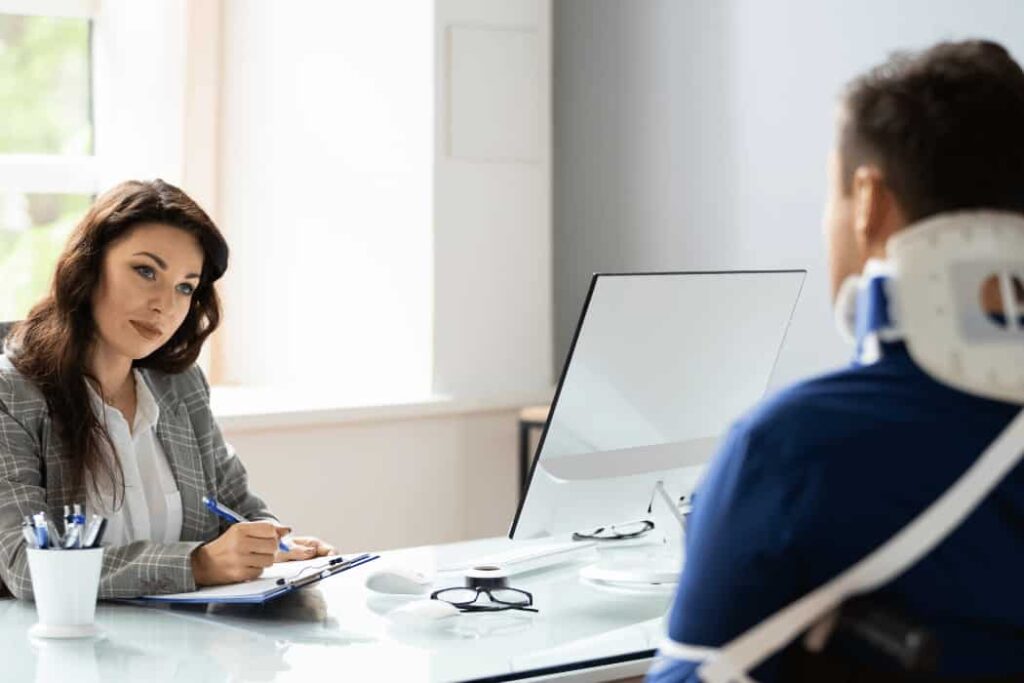Personal injury cases are a common occurrence in today’s society, and they can have a profound impact on the lives of those involved. From car accidents to slip and fall incidents, personal injuries can result in physical, emotional, and financial burdens for the victims. It is essential for individuals to have a basic understanding of the different types of personal injury cases and their legal implications in order to protect their rights and seek the proper compensation. In this article, we will explore the most common types of personal injury cases, their potential causes, and the legal implications that victims may face. Understanding these key aspects can help individuals make informed decisions and navigate the legal system effectively in the unfortunate event of a personal injury. Whether you have been injured in a workplace accident or a medical malpractice incident, this article will provide valuable insights into the various types of personal injury cases, their legal complexities, and the steps necessary to seek justice and compensation.

Motor vehicle accidents and liability
Motor vehicle accidents can result in significant damage and injuries, and determining liability in these cases can be complex. When a motor vehicle accident occurs, it is important to establish who is at fault and responsible for any resulting damages. This process typically involves gathering evidence, such as witness statements, police reports, and surveillance footage, to determine the cause of the accident. Factors such as reckless driving, speeding, distracted driving, or driving under the influence may contribute to the determination of liability. Once liability is established, the responsible party may be held accountable for medical expenses, property damage, lost wages, and other damages through a personal injury claim or lawsuit. It is crucial to consult with a skilled personal injury attorney who can navigate the legal complexities and advocate for the rights of those involved in motor vehicle accidents.
Slip and fall injuries and premises liability
In premises liability cases, slip and fall injuries can have serious legal implications for property owners or occupiers. Slip and fall accidents occur when an individual loses their balance and falls due to hazardous conditions on someone else’s property. These hazardous conditions can include wet or slippery floors, uneven surfaces, poor lighting, or obstacles in walkways. When such an accident occurs, the injured party may have grounds to file a personal injury claim against the property owner or occupier. However, it is important to note that premises liability laws can vary from state to state, and establishing negligence and liability can be a complex process. To navigate these legal complexities, it is advisable to seek the counsel of a knowledgeable personal injury attorney who can assess the circumstances of the slip and fall incident and guide injured individuals in pursuing the compensation they deserve.
Medical malpractice and negligence claims
Medical malpractice and negligence claims are another common type of personal injury case with significant legal implications. These claims arise when a healthcare professional, such as a doctor, nurse, or hospital, fails to provide the standard of care expected in their profession, resulting in harm or injury to a patient. Examples of medical malpractice include misdiagnosis, surgical errors, medication mistakes, and birth injuries. Proving medical malpractice requires establishing the healthcare provider’s duty of care, a breach of that duty, causation, and resulting damages. These cases can be highly complex, involving expert medical testimony and extensive documentation. Therefore, it is crucial for individuals who believe they have been victims of medical malpractice to consult with experienced personal injury attorneys specializing in this area of law. They can guide clients through the legal process, gather evidence, and advocate for fair compensation for their injuries and losses.
Product liability and consumer protection
Product manufacturers have a legal responsibility to ensure that their products are safe for consumer use. Product liability and consumer protection laws exist to protect individuals from harm caused by defective or dangerous products. When a product causes injury or damage due to defects in its design, manufacturing, or inadequate warnings, the injured party may have grounds for a product liability claim. These claims can involve a wide range of products, from household appliances to automobiles and prescription drugs. Manufacturers can be held accountable for the injuries and financial losses suffered by consumers as a result of their defective products. To navigate the complexities of product liability cases, it is essential for individuals to seek the expertise of experienced personal injury lawyers who specialize in this area of law. These attorneys can help victims understand their rights, gather evidence, and pursue legal action to seek compensation for their injuries and the resulting damages.
Common Types of Personal Injury Cases
Defective products causing injury or harm
Negligent manufacturing or design of a product
Failure to warn of potential dangers or risks
Consumer fraud or misrepresentation of a product
Dangerous or insufficient warning labels or instructions
Injuries caused by defective or malfunctioning vehicles or equipment
Workers’ compensation and workplace injuries
In the realm of workplace accidents and injuries, workers’ compensation plays a crucial role in providing support and protection for employees. When an employee is injured or becomes ill due to work-related activities, they may be eligible for workers’ compensation benefits. This system is designed to provide medical treatment, wage replacement, and other necessary assistance to help the injured worker recover and return to work. Workers’ compensation laws vary from state to state, but generally, employers are required to carry insurance coverage to compensate employees for work-related injuries or illnesses. It is important for both employers and employees to understand their rights and obligations under workers’ compensation laws to ensure a fair and just process in case of workplace injuries. This includes timely reporting of the incident, gathering relevant documentation and medical records, and seeking legal counsel if necessary to navigate the complexities of workers’ compensation claims.
Conclusion
It is crucial for individuals to understand the legal implications of personal injury cases, as they can have a significant impact on their physical, emotional, and financial well-being. By being aware of the common types of personal injury cases, individuals can better protect themselves and seek the necessary legal support if they are ever involved in such a situation. Whether it is a slip and fall accident, a car accident, or a medical malpractice case, it is important to seek the help of a trained and experienced personal injury lawyer to ensure that your rights are protected and that you receive fair compensation for your injuries and damages. Remember, personal injury cases can be complex and require careful attention from legal professionals, so do not hesitate to seek guidance and support if you find yourself in such a situation.


